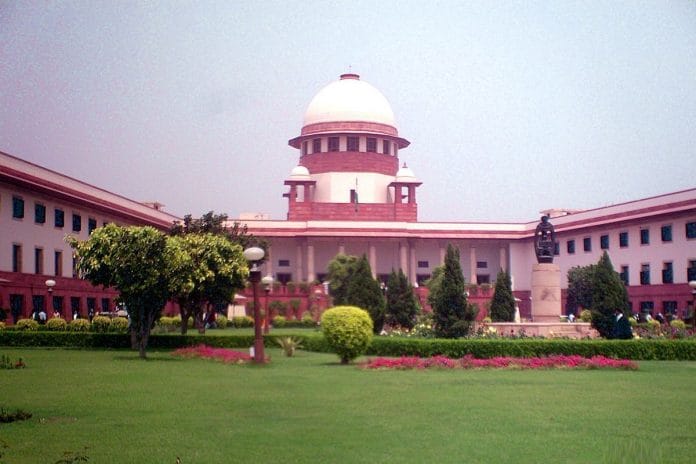Centre’s bid to stop Joseph’s elevation was blocked by judicial precedent — it can’t process one name recommended by the collegium while returning another.
New Delhi: The Narendra Modi government briefly toyed with the idea of appointing senior advocate Indu Malhotra to the Supreme Court while continuing to stall the other name recommended by the collegium –Uttarakhand High Court Chief Justice K.M. Joseph.
But the government had to drop the idea after it realised that a precedent did not allow it to stall one name (Joseph) while processing the appointment of the other (Malhotra).
Sources told ThePrint that the Centre consulted its legal experts to check if it could only appoint Malhotra while keeping Joseph’s case pending. Joseph had delivered a damning judgment, setting aside the imposition of President’s Rule in Uttarakhand by the Modi government, which is why the government wasn’t keen on his name.
However, it transpired that a letter written by a previous Chief Justice of India, R.M. Lodha, had made it clear to the Centre not to “segregate” any case without first seeking the clearance of the collegium.
Justice Lodha had written the letter in June 2014 when the Centre had decided to return the name of senior lawyer Gopal Subramanium, recommended for appointment as judge of the Supreme Court, to the collegium for reconsideration. In his letter, Lodha had asked the Centre that it shouldn’t go ahead with the other appointments recommended along with Subramanium’s till the collegium took a call on him.
However, Subramanium withdrew his consent without waiting for the collegium’s decision, alleging that there was a concerted effort to discredit him through a “malicious” campaign.
In the case of Joseph, while there have been reports that the Modi government has rejected his name and sent it back to the collegium for reconsideration on the premise that the principle of seniority was not followed while recommending his name, the fact remains that the Centre has so far not sent the file back.
As first reported by ThePrint, if the Centre rejects Joseph’s name on flimsy grounds, the collegium may reiterate it.
Even though the Centre seems to be building a case against Joseph’s elevation on the ground that the collegium disregarded seniority and regional representation while recommending him, it is a fact that the Modi government has on several occasions accepted the collegium’s recommendations even though they didn’t fulfil the principles of seniority and regional representation.







Ultimately, the collegium’s view will prevail. That is settled law. However, the vacancies are adding to judicial backlog, hurting litigants, the largest of whom is the government.
Settled by whom ? The Supreme Court ?? Isnt it convenient that the Supreme Court has arrogated to itself the power to “settle law” and settle its own appointments ? The facade of “Judicial independence” has been stretched so thin – it beggars belief. Unfortunately for the Judiciary this Govt isn’t the dysfunctional wreck it is used to dealing with. And the public no longer considers the Judiciary to be beyond reproach.
Ultimately the collegium system will collapse under the weight of its own morally dubious and extra Constitutional nature. The SC has arrogated too much power without any checks or balances – this farce called “collegium” shall not go on indefinitely and I think even the judiciary is seeing voices of dissent and discomfort with this charade of the Judiciary appointing itself .